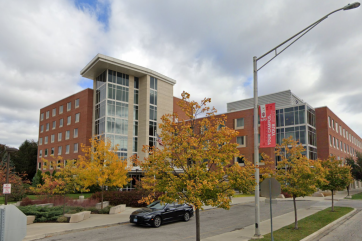A substantial survey reveals that just 50% of postgraduate researchers in both the UK and Australia feel integrated into a community of their peers. The findings underscore the challenge institutions face in fostering a sense of belonging among postgraduate researchers, emphasizing the need for initiatives that enhance the community experience and support networks for these academic professionals.

Postgraduate Dissatisfaction on the Rise
In a recent report by Advance HE, the Postgraduate Research Experience Survey (PRES) for 2023 reveals a nuanced picture of satisfaction among postgraduate researchers (PGRs) across 105 institutions, including four in Australia. While the survey highlights an overall satisfaction rate of 79%, down slightly from 80% in 2022, a deeper examination reveals disparities, challenges, and areas for improvement.
The report's overarching theme points to a satisfactory postgraduate research experience, with eight out of ten researchers expressing contentment. However, the marginal decline from 82% in 2013 to 79% in 2023 raises concerns about a gradual erosion of satisfaction over the past decade.
READ ALSO: Professor At Indian Premier University Resigns Due To Stifled Academic Freedom
Dynamics of Diversity in Australia
The PRES report sheds light on differing satisfaction levels among researchers of various ethnicities. Notably, White students exhibited the highest satisfaction in 2023, a shift from 2019 when Asian students held the top spot. The report also underscores a persistent challenge - researchers with a disability continue to report lower overall satisfaction, emphasizing the need for tailored support and inclusive practices.
A noteworthy finding from the survey is the disparity in satisfaction between researchers predominantly working online and those with in-person engagement. This insight into the impact of virtual modes on satisfaction levels reflects the evolving landscape of postgraduate research in the wake of the pandemic.
Economic Realities and Cost of Living Concerns
Among researchers contemplating departure, the rising significance of the cost of living as a determining factor in their challenges is a noteworthy trend. This economic consideration introduces a practical dimension to the broader conversation about retaining and supporting postgraduate researchers.
Introducing a novel element, the 2023 PRES explores 'Satisfaction with elements of Community.' The results are illuminating, with relatively low scores indicating that the sense of belonging and community among postgraduate researchers requires attention. Notably, female PGRs report feeling less connected, signaling a gender-specific aspect of the community dynamic.
Jonathan Neves, Head of Business Intelligence and Surveys at Advance HE, emphasizes the primary purpose of PRES as offering insights for enhancement. While celebrating the positive aspects of the report, Neves underscores the imperative for institutions to delve into the disparities, especially among females and minority groups, and to address the gradual decline in satisfaction over time. The call is clear - use this data not just for acknowledgment but as a catalyst for meaningful change.
As institutions grapple with the PRES findings, the challenge lies in transforming insights into action. Recognizing the disparities and addressing the multifaceted dimensions of satisfaction, from ethnicity to community dynamics, is crucial for creating a more inclusive and supportive postgraduate research environment. The journey toward improvement requires collaboration, introspection, and a commitment to ensuring that postgraduate researchers embark on their academic endeavors with a sense of belonging and fulfillment.
RELATED ARTICLE: University Students From Rural Areas Strengthen Social Support Networks








